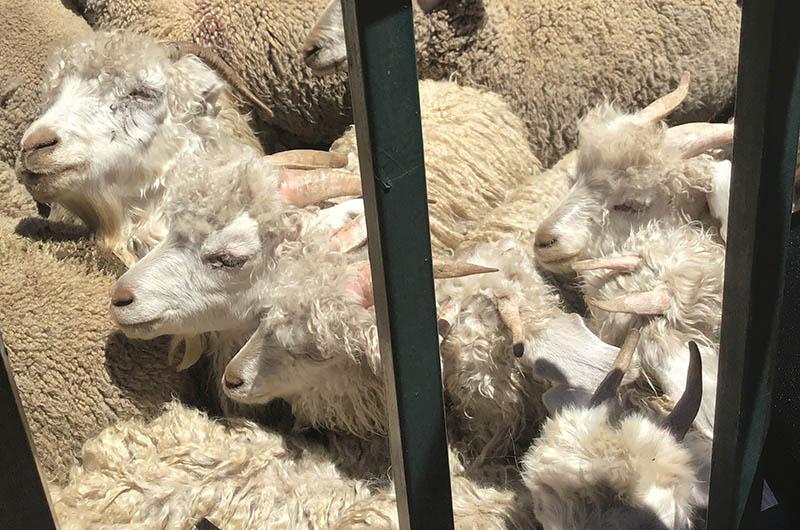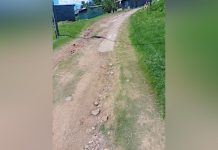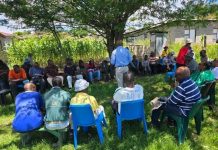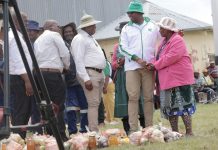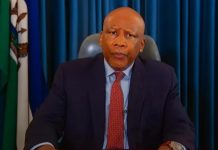Africa-Press – Lesotho. The dilemmas that have been going on in the wool and mohair industry in Lesotho since September 2018 may have ended but the big question is how the solutions that have been reached will impact the country’s economy as well as wool and mohair farmers themselves.
Last month government, through the cabinet sub-committee on wool and mohair, decided to increase the number of wool and mohair brokers and auctioneers from just one to five.
Four companies; Maluti Wool and Mohair Centre, BKB, OVK (CMW) and Highlands Veterinary Services, have all been awarded licenses in wool and mohair brokering and auctioning while another local company, Frasers, will operate in wool and mohair shearing and bulk storage.
The awarding of these licenses, government revealed, is meant to increase options for farmers and traders in the country, a move that ended the monopoly that has been going on since last year when a Chinese-owned company, Maseru Dawning took over.
While the developments could be detrimental to Maseru Dawning and Thaba-Bosiu Wool Centre, local farmers have expressed satisfaction on the fact that they will now be spoilt for choice in terms where they want to sell their fibre.
The Lesotho Revenue Authority (LRA), on the other hand, is also hoping to benefit through increased collections in revenue, which was not the case in the past.
This, after a long dispute and a series of court cases between government and wool and mohair farmers following the introduction of the Agricultural Marketing (Wool and Mohair Licensing) (Amendment) Regulations No.65 of 2018 which barred farmers from exporting their fibre to a South African company BKB.
The regulations barred farmers from trading in wool and mohair without a licence obtained from the Ministry of Small Businesses, Co-operatives and Marketing.
They further stated that the holder of an export license shall not export wool and mohair unless it is prepared, brokered, traded and auctioned in Lesotho under the guidance of the Chines- owned company Maseru Dawning.
Farmers were however divided, with some refusing to supply Maseru Dawning while others noted they were not consulted ahead of the introduction of the regulations as owners of the product in question.
They labelled the new dispensation a total ambush by government. Government, on the other hand, defended the move as a perfect way to try and bring the industry under local control and create more jobs for Basotho and benefit the fiscus.
With these developments, analysts also believe the increase in the number of brokers will remove the blemishes that came with the monopoly which saw farmers being forced to rely on one broker for almost a year.
A local chartered accountant and business adviser, Sam Mphaka, said the move by government will eventually eradicate the poor service delivery and substandard quality that came with having only one licensed wool agency at Thaba-Bosiu wool centre.
“First and foremost, any market competition, as a basic tenet of business, guarantees among others quality service and or products and arm’s length pricing of the same.
“In other words, where there is a monopoly there is a high likelihood of poor service delivery, substandard quality of goods and non-arm’s length pricing of the same.
“Where there was only one licensed wool-agency player, we witnessed a high outcry about the poor service and unsatisfactory wool price experienced by the wool farmers.
“There could have been other factors which caused the outcry however, top on the list were those stated in this article,” Mphaka said in an interview with Public Eye on Wednesday this week.
He went on to state that farmers will benefit through the initiative in terms of quality service, delivery and competitive pricing as wool farmers will an option to choose any wool agent who provides the best service and price.
“They will even themselves have a chance to become agents as well. Meaning they could be producers of wool and agents for exportation to the international markets. They could engage in both the primary and secondary wool industry,” he added.
The Lesotho Revenue Authority (LRA) shares almost similar sentiments with the authority’s Public Relations Manager Pheello Mphana emphasising that increased economic activity could mean an increase in revenue collection.
“Any individual or entity making an income in Lesotho, such income is taxed in line with applicable laws. So, if there is increased economic activity that by law is taxable, then there can be an increase in terms of collections,” Mphana said on Wednesday.
Over the years, wool and mohair sales have provided Lesotho with its largest exports and with its largest domestically generated sources of income. Close to 30, 000 farmers are involved in wool and mohair production in Lesotho, with revenue ranging between M200 and M300 million annually.
It was revealed in the 2019/20 budget presentation that commissions and other charges in the industry are estimated between 20 and 50 percent of revenues, mainly going to middle men and without government delivering any tax. Productivity per animal averages 2.7 kilograms compared with five in South Africa.
To raise productivity per animal, the Ministry of Agriculture and Food Security is expected to distribute 300 ewes as breeding stock to the wool and mohair farmers in the southern part of the country in the current financial year.
For More News And Analysis About Lesotho Follow Africa-Press

